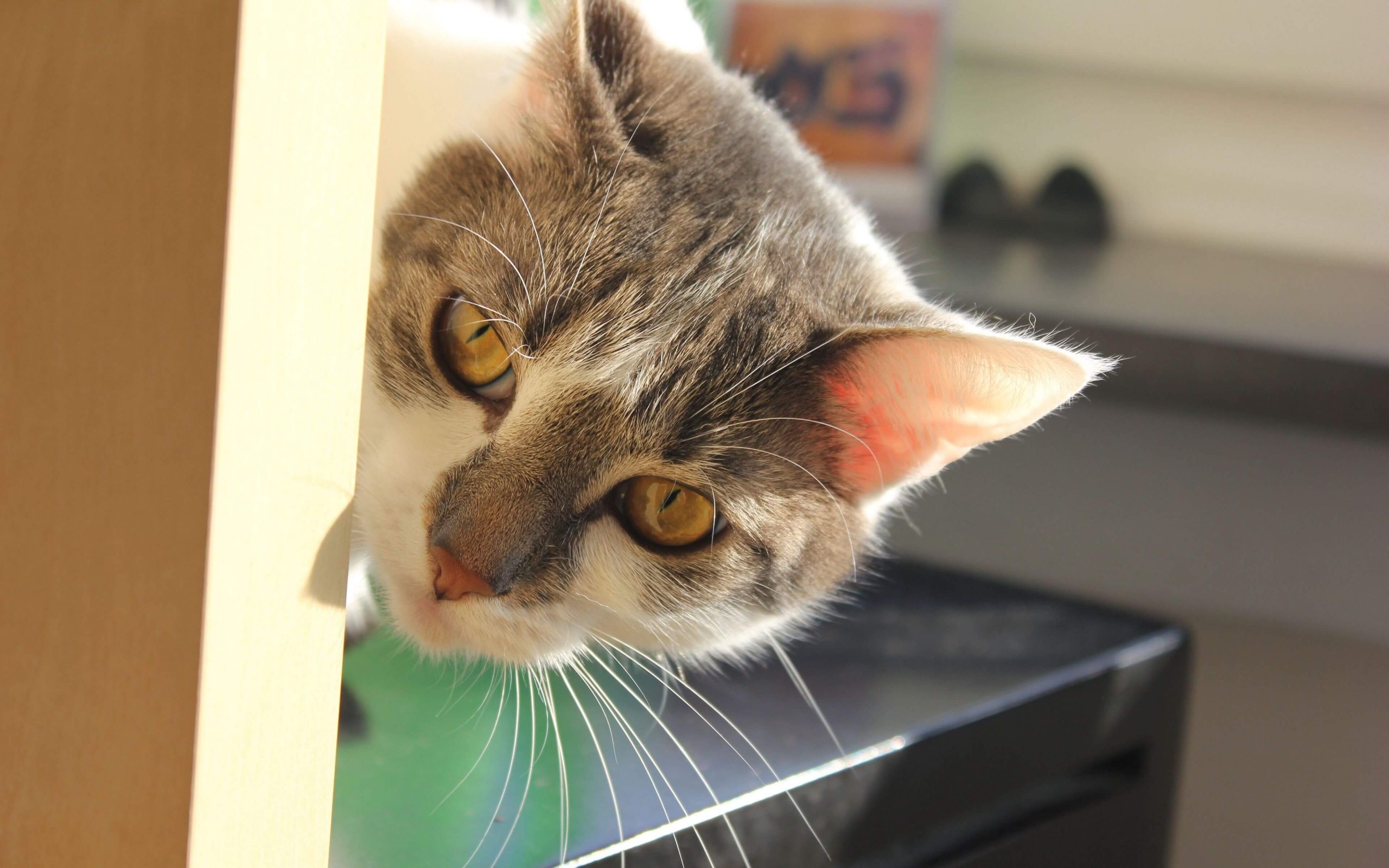If a cat has gas it can quickly become annoying. It can also be caused by a health problem.
If your cat has gas and this problem is starting to become a nuisance in everyday life, then it may be a sign that your pet is having digestive problems. Since cats do not show that they are in pain, one must watch out for any kind of behavior change to make sure everything is okay!
Flatulence in Cats: Getting to the Bottom of the Cause

Usually, flatulence in cats is relatively discreet, which cannot be said of dogs, for example. But, like most animals, cats need to get rid of excess digestive gases that are created when their bodies process their food. Since these are also animals that rarely burp, it is actually only logical that they often have flatulence.
Cat swallows air
It is quite possible that your cat will fart more often than usual, for example, because it has swallowed air while eating. Stressful situations or restlessness can also lead to flatulence in cats. In this case, they don’t last long and usually don’t smell too strong.
Stress creates farts
However, if you notice that your cat has gas more often and that it smells stronger than usual, then this may be a sign of a digestive problem. This could be constipation or diarrhea, an allergy, or food intolerance. There may also be intestinal parasites (worms). You should urgently see your veterinarian if symptoms last longer than a few days.
Diet and food cause flatulence
If you recently changed your cat’s diet, this may be the reason for this new health problem. You can wait a few days to see if the gas will go away on its own after your cat gets used to the new food. However, if the problem persists, you should contact a veterinarian for an opinion.
When your cat goes outside, he may eat things you don’t know about, such as hunting prey or going to neighbors for small treats. Do some research and you might find out where your cat’s gas is coming from!
Older cats
Otherwise, your cat’s diet may not or no longer be suitable for it. This could be for a number of reasons, such as your pet getting old and needing special nutrition for older cats. This is recommended from the age of 7 years.
Sterilized cats
It should also not be forgotten that neutered cats need a different diet so that they optimally meet their changing energy needs! In some cases, poor-quality food can have a negative impact on digestive health, especially if the cat has a sensitive stomach.
Then you have the opportunity to change your diet in consultation with your veterinarian. There are special foods for cats that are prone to gas.
What to Do with Flatulence
Certain digestive problems, such as vomiting, diarrhea, or inflammatory diseases of the small intestine, can cause gas in cats. If your cat is affected, you need to contact your veterinarian quickly so that he can prescribe the appropriate medication for the animal.
Your cat’s digestive system may also be weakened as a result of illness, medication, diet, or a change of season. Perhaps “bad” bacteria have settled in your cat’s digestive tract and are multiplying there. This creates an imbalance in the intestines and leads to digestive problems, which can be felt as flatulence.
Probiotics for flatulence in cats
In this case, you can give your cat a probiotic regimen to restore the balance of your cat’s intestinal flora. The “good” bacteria strengthen your cat’s immune system and make them fit again by promoting their health and mood. It also combats the flatulence of the cat.
Smaller portions
If you find that your cat is eating too quickly and is consequently swallowing a lot of air while ingesting it, you can divide its meals into several smaller portions and/or invest in an anti-Schling food bowl. With such a bowl, your cat eats more slowly and chews its food longer.
If you are concerned about your cat’s gut health, make an appointment with their veterinarian soon. In many cases, it is nothing bad and then you don’t need to worry anymore. If the problem is that needs treatment, the earlier the diagnosis is made, the better it is for your cat and for you!

